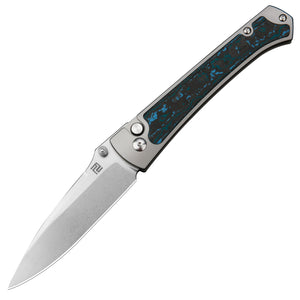The History and Significance of Pocket Knives: A Comprehensive Blog Article
Body
Pocket knives have been around for centuries, and have evolved from simple tools used for hunting and survival to everyday carry items. Pocket knives are small, foldable knives that fit easily into a pocket, hence the name. They can be used for a wide range of purposes, from opening packages to cutting vegetables and even self-defense. In this article, we will delve into the history and significance of pocket knives.

The History of Pocket Knives
Pocket knives can be traced back to the early Iron Age when simple folding knives were used for hunting and cooking. As metalworking techniques progressed, so did the design and functionality of pocket knives. The Romans, for example, had a type of pocket knife called the pugio, which was worn by soldiers and used for combat.
During the Middle Ages, pocket knives were used as weapons by knights and soldiers. They were also used by peasants for everyday tasks such as cutting food and carving wood. The modern pocket knife as we know it today did not truly emerge until the 16th century. The first Swiss Army Knife was created in 1891, and it contained various tools such as a knife blade, can opener, and screwdriver, all folded neatly into one compact device.
The Significance of Pocket Knives
Pocket knives have become an essential part of everyday carry for many people. They are used for a variety of tasks, both mundane and essential. For instance, opening packages, cutting rope, and breaking down cardboard. In emergency situations, they can be used for self-defense or emergency medical procedures. Pocket knives are also popular among outdoors enthusiasts who use them for camping, hunting, and fishing.
In addition to their practical uses, pocket knives also have cultural significance. They are often given as gifts or passed down as family heirlooms. For some people, carrying a pocket knife is a symbol of masculinity or preparedness. Pocket knives have even been used in popular media, such as in the movie “The Outsiders” where they were used as weapons by rival gangs.
The Future of Pocket Knives
The design and functionality of pocket knives have continued to evolve throughout history, and they continue to do so today. There are now pocket knives with multiple blades, serrated edges, and even automatic opening mechanisms. In recent years, there has been a trend towards smaller and more discreet pocket knives for everyday carry. Additionally, the use of high-tech materials such as titanium and carbon fiber has allowed for stronger and lighter pocket knives.
As society continues to evolve, so too will the uses and designs of pocket knives. However, one thing is certain – pocket knives will continue to be an essential tool for generations to come.
Conclusion
In conclusion, pocket knives have a rich history and cultural significance. They have been used for hunting, combat, and everyday tasks throughout history. Today, pocket knives are an essential part of everyday carry for many people and continue to evolve in design and functionality. Their practical uses, cultural significance, and future potential make pocket knives an item of enduring value and importance.











Comments